This is a step-by-step guide on how to register a new Alert Consumer in SAP PI/PO Component Based Message Alert framework (CBMA). New Alert Consumer registration is useful when you have a requirement to configure Interface specific alerts. In other words, in case you have a requirement to send alert notifications to different end users depending on the functionality or functional area of the interface.
For example, if you want to send alerts from Order to Cash (OTC) related interfaces to [email protected], and alerts from Purchase to Pay (P2P) related interfaces to [email protected], you have to register two consumers, one for OTC and one for P2P.
SAP Versions used in the illustration:
- SAP PO 7.5
Steps by Step Guide on How to Register New Alert Consumer:
Prerequisite: Create Alert Rule in Integration Directory (ID).
First, create an Alert Rule in ID before proceeding to new Alert Consumer registration steps. For this example let’s create an Alert Rule named ‘Test_AlertRule’.
Step 1: Go to Netweaver Home Page and Select We Service Navigator.
Go to Netweaver Application Server Home page using URL http://<host>:<port> and select Web Service Navigator.
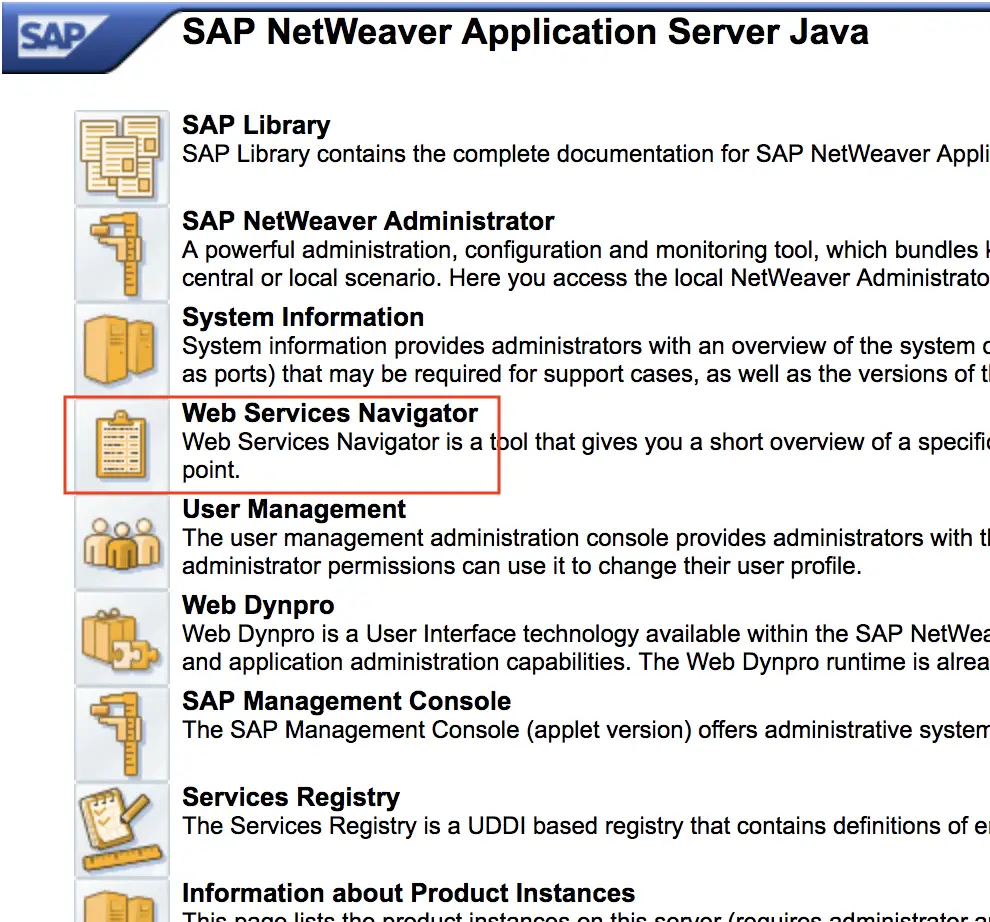
Step 2: Select Service ‘AlertRuleIn’.
Select Service Interface as ‘Provider System’ and search for ‘AlertRuleIn’.
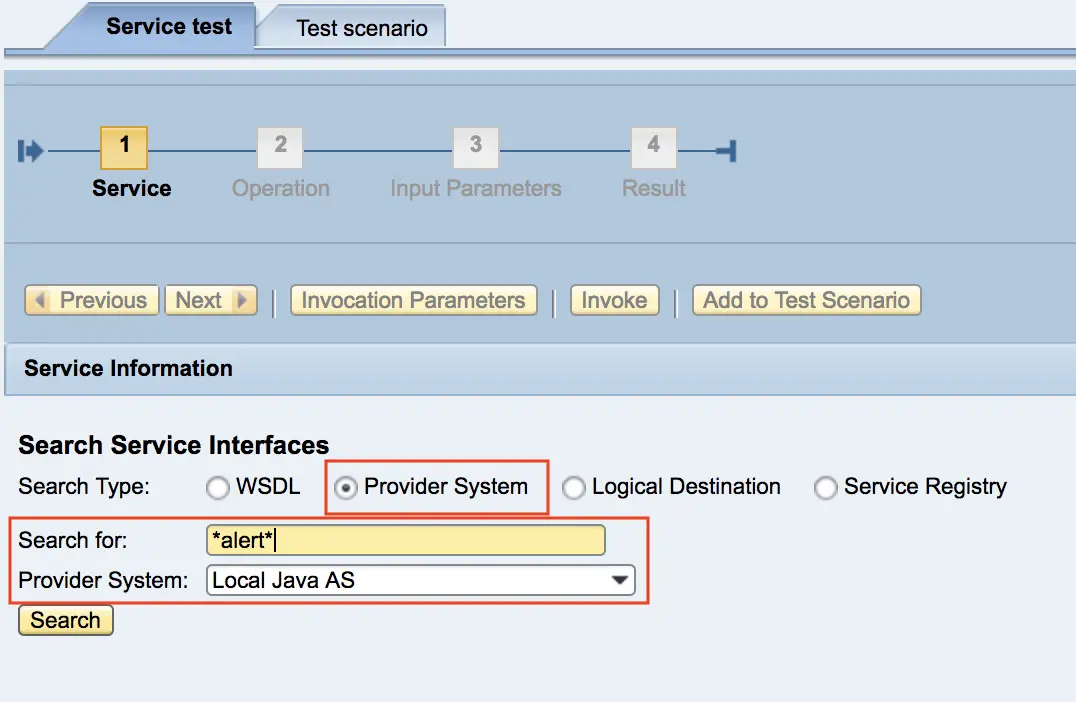
Step 3: Select ‘AlertRuleIn’ Service Interface.
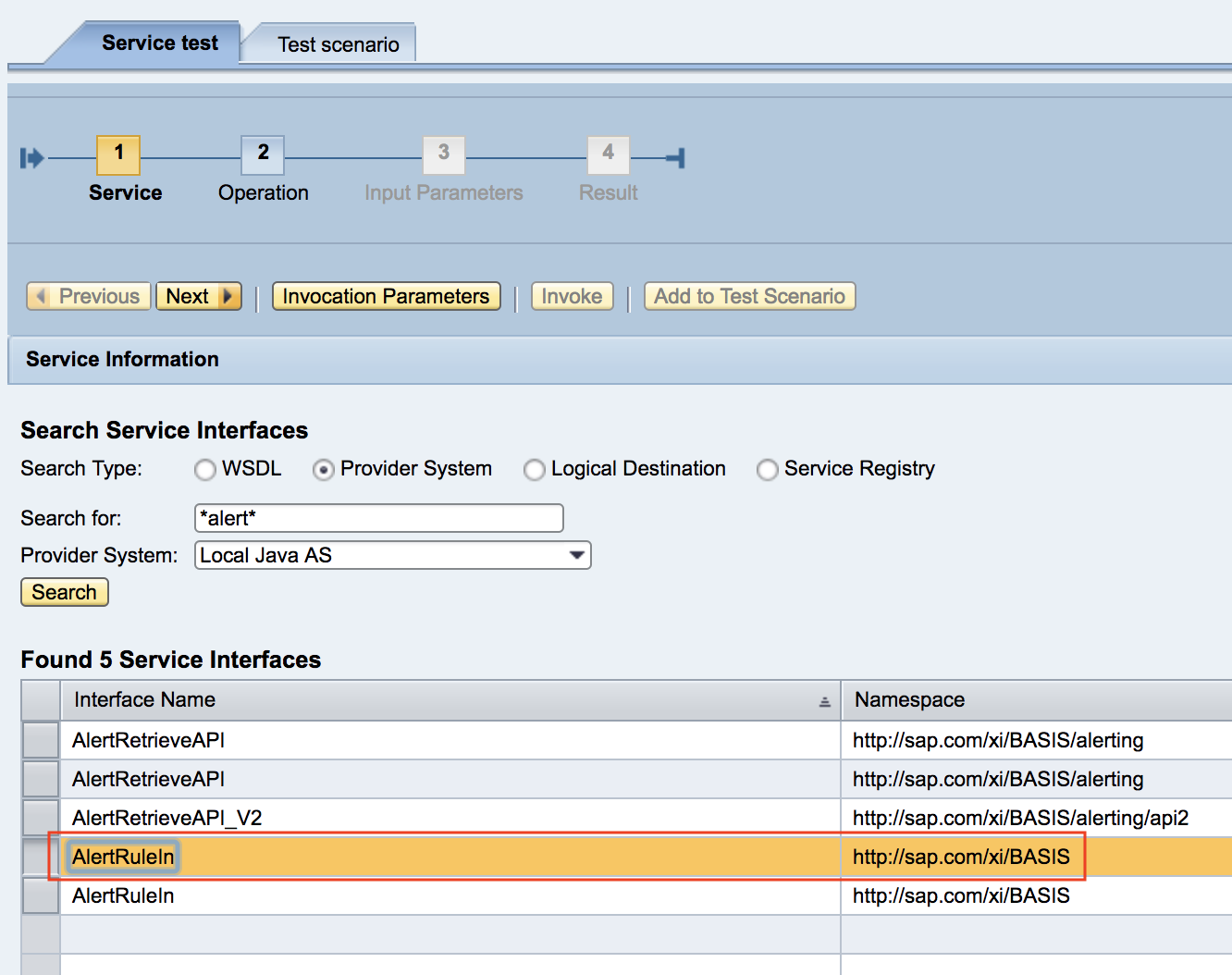
Step 4: Select Operation ‘RegisterConsumer’.
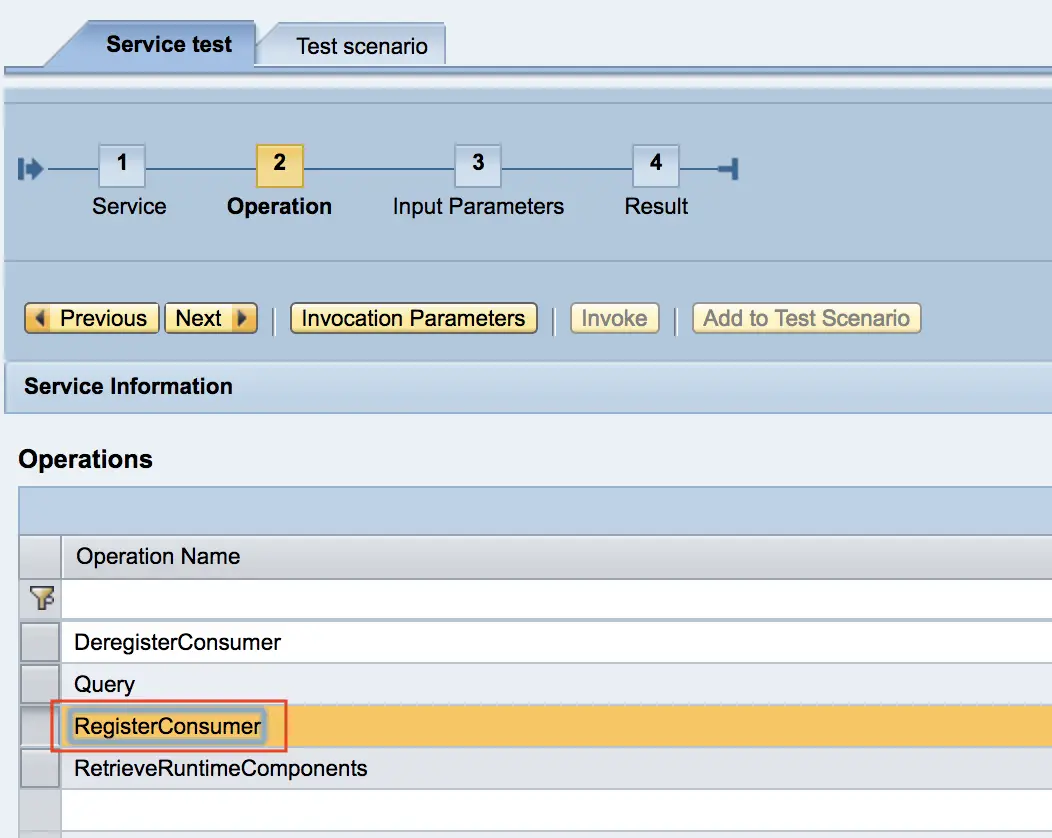
Step 5: Set ‘AlertRuleID’ and ‘ConsumerName’.
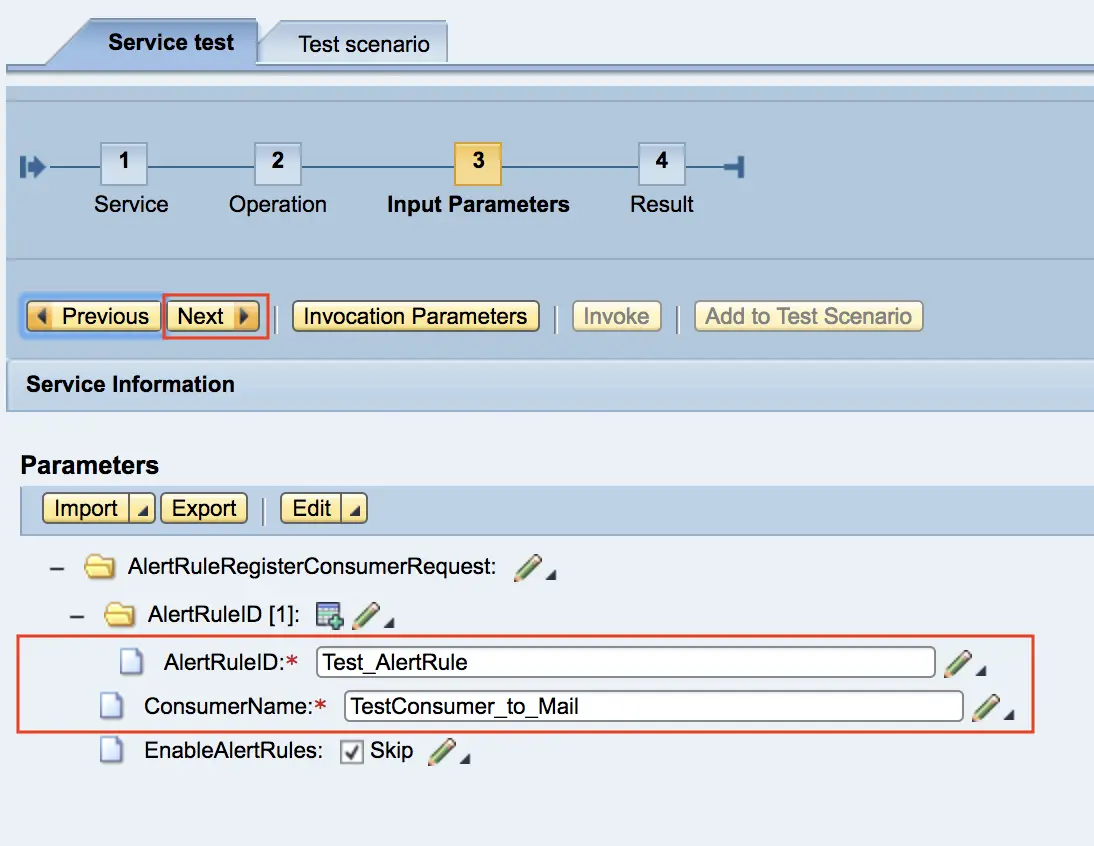
Enter the name of the Alert Rule you generated in Integration Directory. In this example we have created an Alert Rule named ‘Test_AlertRule’ in ID.
You will be prompted to enter user name and password. Enter username and password of SAP PI/PO system user with admin authorization.
Step 6: Invoke Service.
Click invoke button to register new Alert Consumer. If the registration is successful message ‘Operation RegisterConsumer executed successfully’ will be promoted.
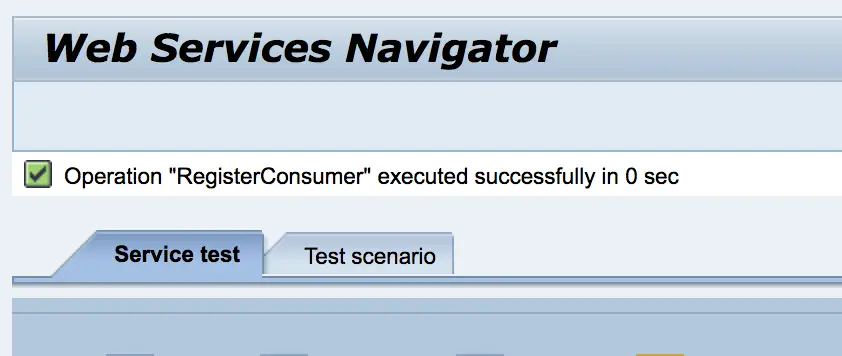
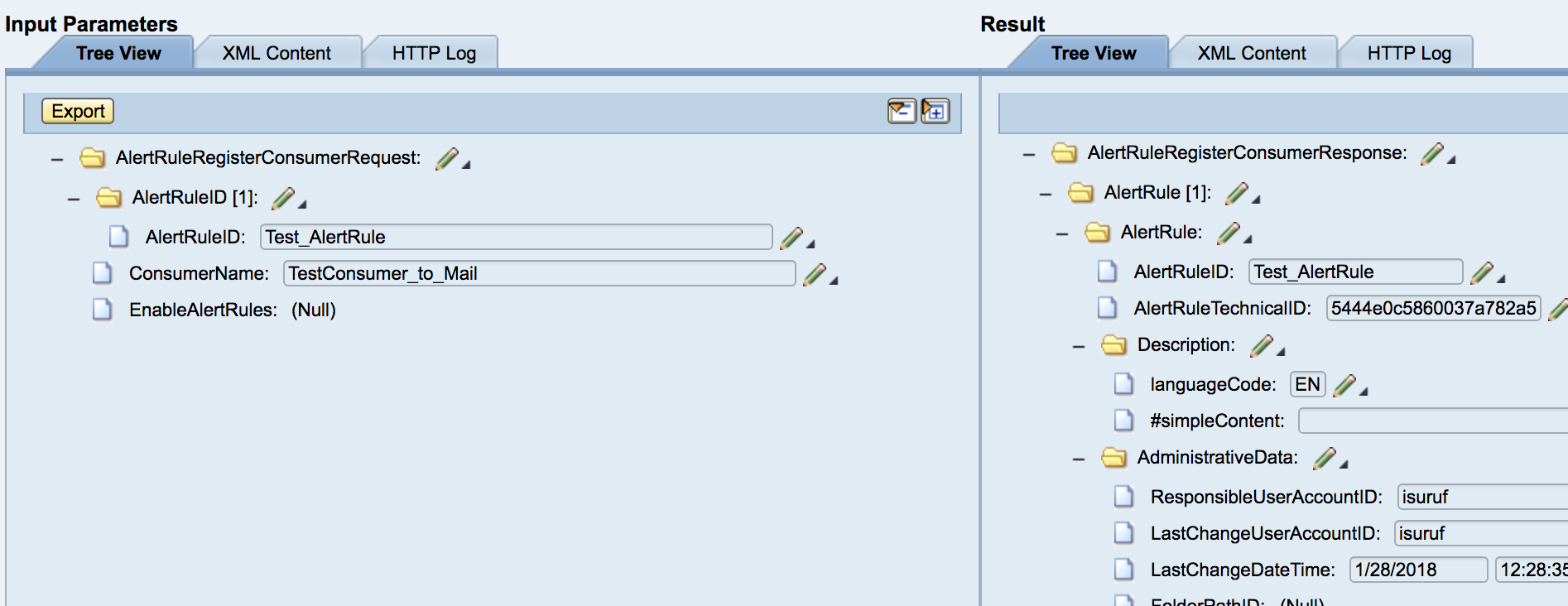
Step 7: Validate if Alert Consumer is Assigned to Created Alert Rule.
Go to Integration Directory to validate if new Alert Consumer is assigned to Alert Rule correctly.

Please leave a comment with your questions and feedback.


Hi ,
Can you provide any example for Maintain order at runtime interface example.
Thanks.
Hi Gupta,
‘Maintain Order at Runtime’ is one way you can achieve EOIO (Exactly Once in Order) QoS (Quality of Service). If you have two Operation Mappings for the same sender (Outbound) interface, using ‘Maintain Order at Runtime’ you can maintain message sequence at runtime. For example if you have a file sender which sends Purchase Orders and Deliveries in the same file and you want to post Purchase Orders iDocs first then Delivery iDocs you can use this method. Since Deliveries cant be created before corresponding Purchase Order are created in SAP, create two different Operation Mappings, one for Purchase Order and another for Deliveries. Attach Purchase Order OM first then Delivery OM and activate Maintain Order and Runtime.
I will try to write a example post on this.
Hello Isuru Fernando,
First of all thanks for an very good blog.
For some regions I have created a new Alert configuration using the default consumer ALERT-TO-MAIL and the configuration is success and we are getting mails. Done and very happy.
For another regions we have to create a new alert configuration and we have new mail ids to sent.
1.So my question is can I use the same consumer ALERT-TO-MAIL or should I create a new one.
2. I assumed that we should create a new consumer and followed this and created a new consumer and it is success also. After configuring the job, we are not getting alerts even though I can see alerts are generated in pimon-> alert configuration -> logs (I can see what logs are generated)
Kindly suggest us what will be the root cause.
Hello Isuru Fernando,
Thanks for the great blog.
First of all I have configured the alert configuration using consumer ALERT-TO-MAIL and created the job
and the customers are getting mail as per the requirement.
1. Now we have new requirement for new region and can I use the same consumer ALERT-TO-MAIL.
2. From reading different blogs and the knowledge that I have I created a new consumer as per this blog
eberything is success and after that I have created a job with this new consumer that I have created.
I am not at all getting mails, tried all ways and could not finf out any solution.
Can you kindly check and suggest me what would be the issue and did I miss anything.
Warm Regards,
Trilok
Hi Trilok,
Check out my other post on how to set up Alerts in SAP PI/PO. if everything is setup properly, you should be able to view the alerts which are generated.
Cheers,
Isuru
I am getting the below error in step 4(Reslt step)
Invalid transport binding settingserrno: 111 (Connection refused), error: Connection refused (port 443 to address ::ffff:127.0.0.1)
Please help me on that.
Hi ,
You can try to select the http endpoint.
Hello Isuru Fernando,
Thanks for the great blog. It’s really helpful.
I want to create a alert rule, and did everything step by step as per this blog, but why I still got error like this:
3 alerts had been consumed and aggregated successfully.
1 alerts had been suppressed.
javax.mail.AuthenticationFailedException: 535 5.7.8 Error: authentication failed
I have configured consumer as “ALERT-TO-MAIL” and emailTo as the email address of the user who should receive the notification.
Thank you Jessi! You need to check with your BASIS team on this issue.
I have created a custom Alert consumer in Dev. How can I add this new Alert consumer in my transport? In my project we use CTS+.
Hello Shailendra,
Alerts rules are transported the same way you transport other objects in PI/PO. Create a new TR in CTS+ transportment management home and assign the alert objects to the TR.
Cheers!
Isuru
Hi Isuru,
When I am trying to register new consumer, I am facing below error at Invoke step. Can you pleas help.
invalid transport binding setting peer certificate rejected by chaninverifier
Thanks,
sowmya
Sorry Sowmya, I have not come across this particular issue. Maybe someone who else here can help you!
Hi Isuru,
Is there any difference in creating the new consumer directly in ID itself and above mentioned process through WS Navigator?
Thanks,
Chandu
Hi Chandu,
Probably not for single stack version. But, depends on the version that you are in.
Cheers!
Isuru
Hi Fernando,
You have done a very nice job, but when I am trying to invoke the Service I am receiving the below error..
“Invalid transport binding settingsPeer certificate rejected by ChainVerifier”.
Do you have any idea about this?
Thank you in advance,
John Banellas
Hi Isuru,
I’m working on custom email alerts, its working fine when use the command UDS Attributes : $uds_attributes$(displaying collectively) since I have defined more than one fields as UDS field. Is it possible to refer individually? I tried with this command PONumber:$PONumber$ but no luck, any idea please
Hello Isuru,
I am working on a project where I am responsible to find the security vulnerabilities between SAP PI and other SAP and non-SAP systems. Can you please guide me on how can i come to know about security vulnerabilities between SAP PI and SAP ECC and Non-SAP systems?